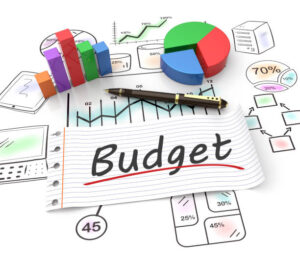The Psychology of Debt: 7 Tricks to Overcome It ASAP
Debt is more than just a financial burden; it is a psychological weight that affects millions of people worldwide. Understanding the psychology of debt is essential to breaking free from its grip and regaining control over your finances and mental well-being. Research shows that over 60% of adults experience stress related to money, and debt is often the primary cause. The American Psychological Association reports that financial stress can lead to anxiety, depression, and even physical health problems. This article explores the psychology of debt in depth and offers seven practical, effective tricks to overcome it as soon as possible.
Why does debt cause so much mental strain? How can understanding the psychology behind debt help you overcome it faster? Let’s explore these questions and more.
What Is the Psychology of Debt?

The psychology of debt refers to the way owing money influences your thoughts, feelings, and behaviors. Debt is not just a number on a statement; it affects your brain, emotions, and social interactions. When you are in debt, your mind often perceives it as a threat, triggering stress responses similar to those caused by physical danger. This stress can impair your ability to think clearly, make good decisions, and take positive action.
How Debt Affects the Brain
Studies from the University of Cambridge have shown that people with significant debt experience reduced cognitive function. This means their brains are so preoccupied with worrying about money that they have less mental energy available for other tasks. This condition is often called the “scarcity mindset.” When your mind is focused on scarcity—what you lack—it narrows your attention and reduces your ability to plan for the future or solve problems effectively.
Emotional Consequences of Debt
Debt often causes feelings of shame, guilt, and embarrassment. Many people internalize their financial struggles, believing that debt is a personal failure or a sign of poor character. Financial therapist Brad Klontz explains that “money shame is one of the most toxic emotions related to debt because it keeps people stuck in avoidance rather than action.” This emotional trap can prevent people from seeking help or making changes.
Social Impact of Debt
Debt can also affect your relationships. Research indicates that people in debt are more likely to withdraw from social activities and isolate themselves due to fear of judgment. This isolation can worsen mental health and make it harder to find support or advice.
The Vicious Cycle of Debt and Stress
The psychology of debt creates a vicious cycle. Stress and anxiety caused by debt make it harder to manage money wisely, leading to more debt, which causes more stress. Breaking this cycle requires understanding these psychological effects and applying strategies to reduce both financial and emotional burdens.
Why It’s Important to Overcome Debt Quickly
The longer debt remains unpaid, the more it affects your mental and physical health. The American Psychological Association reports that chronic financial stress can lead to high blood pressure, insomnia, and a weakened immune system. Additionally, prolonged debt can damage your credit score, limiting your ability to access loans, housing, or even certain jobs.
Overcoming debt quickly helps you regain control, reduce stress, and improve your overall quality of life. The sooner you tackle debt, the sooner you can rebuild your financial stability and mental well-being.
7 Tricks to Overcome the Psychology of Debt ASAP

Here are seven practical and effective tricks, based on psychological insights and financial research, to help you overcome debt as soon as possible.
1. Acknowledge Your Debt Without Shame

The first step to overcoming debt is to face it honestly and without judgment. Denial or avoidance only prolongs the problem. Remember, debt is a situation, not a reflection of your worth.
– Accept that you have debt and commit to addressing it.
– Talk openly about your financial situation with trusted friends or family.
– Consider journaling your feelings about debt to reduce shame and gain clarity.
Financial therapist Joseph D. Wolfe says, “You are not your debt. Debt is something you have, not something you are.” This mindset shift is crucial for moving forward.Paycheck to Paycheck: 7 Steps to Escape the Cycle of Debt
2. Break Down Your Debt Into Manageable Pieces

Large debts can feel overwhelming, but breaking them into smaller parts can make them easier to tackle.Are You Drowning in Debt? Discover 5 Secrets to a Debt-Free Life
– List all your debts with balances, interest rates, and minimum payments.
– Identify the smallest debt or the one with the highest interest rate.
– Focus on paying off one debt at a time while making minimum payments on others.
This method, known as the “debt snowball” or “debt avalanche,” provides psychological wins that boost motivation. A study by the University of Pennsylvania found that paying off small debts first improves cognitive function and reduces anxiety by 11%.
3. Create a Realistic Budget and Stick to It

Budgeting is a powerful tool to manage your money and reduce debt.10 BUDGET HACKS TO FREE UP MONEY FOR DEBT PAYMENT IN 2025
– Track your income and expenses for at least one month.
– Categorize spending and identify areas to cut back.
– Set a monthly debt repayment goal that fits your budget.
– Use budgeting apps or spreadsheets to stay organized.
A clear budget removes uncertainty and gives you a plan to follow, which reduces stress. The National Endowment for Financial Education found that people who budget regularly are 30% more likely to pay off debt faster.
4. Negotiate Lower Interest Rates
High-interest rates can keep you trapped in debt longer. Negotiating with creditors can save you money and speed up repayment.10 Debt Management Tools That Can Help You Take Control of Your Finances
– Contact your credit card companies or lenders.
– Explain your situation and ask for lower interest rates or payment plans.
– Consider consolidating debt with a lower-interest loan.
Many creditors are willing to negotiate, especially if you have a good payment history. This approach can reduce monthly payments and free up cash to pay down principal faster.
5. Avoid Emotional Spending
Emotional spending is a common trigger that worsens debt. People often spend money to cope with stress, boredom, or sadness.
– Identify your emotional spending triggers.
– Develop healthier coping mechanisms like exercise, meditation, or hobbies.
– Delay non-essential purchases by 24 hours to avoid impulse buys.
According to a survey by Debt.com, nearly 50% of Americans admit to taking on more debt when feeling stressed. Breaking this habit is essential to overcoming debt.
6. Seek Professional Help Early
You don’t have to face debt alone. Financial advisors, credit counselors, and therapists can provide valuable support.
– Look for certified credit counseling agencies.
– Consider financial therapy if emotional issues affect your spending.
– Use resources like the National Foundation for Credit Counseling (NFCC).
Seeking help early can prevent debt from worsening and provide personalized strategies to regain control.
7. Use Debt Relief Programs If Eligible
Debt relief programs, such as debt management plans or settlement programs, can reduce your debt burden.
– Research reputable debt relief options.
– Understand the pros and cons before enrolling.
– Use programs that offer transparent fees and clear terms.
Studies show that debt relief programs not only reduce debt but also improve psychological well-being by reducing anxiety and increasing financial confidence.
Additional Strategies to Support Your Debt-Free Journey
While the seven tricks above are powerful, combining them with these additional strategies can enhance your success.
- Build an Emergency Fund
Having a small emergency fund prevents new debt when unexpected expenses arise.
– Aim to save at least $500 initially.
– Gradually increase to cover 3-6 months of expenses.
- Automate Payments
Automating debt payments ensures you never miss a due date, avoiding late fees and credit damage.
– Set up automatic transfers from your checking account.
– Monitor payments regularly to stay on track.
- Educate Yourself About Personal Finance
Knowledge empowers you to make better decisions.
– Read books, blogs, and reputable financial websites.
– Attend workshops or webinars on money management.
- Practice Mindfulness and Stress Reduction
Managing stress improves decision-making and reduces emotional spending.
– Try meditation, deep breathing, or yoga.
– Prioritize sleep and physical activity.
The Role of Mindset in Overcoming Debt
Your mindset plays a crucial role in how quickly you overcome debt. Viewing debt as a temporary challenge rather than a permanent state helps you stay motivated.
- Cultivate a Growth Mindset
Believe that you can improve your financial situation with effort and learning.
– Replace negative self-talk with positive affirmations.
– Celebrate small victories along the way.
- Set Clear, Achievable Goals
Specific goals increase focus and accountability.
– Define how much debt you want to pay off each month.
– Visualize your debt-free future.
Common Myths About Debt and Why They Hurt You
Understanding common misconceptions can prevent you from making costly mistakes.
– Myth: Ignoring debt will make it go away.
Fact: Ignoring debt worsens it with added fees and interest.
– Myth: Debt is always bad.
Fact: Some debt, like mortgages or student loans, can be strategic if managed well.
– Myth: I need to earn more to pay off debt.
Fact: Managing spending and budgeting often has a bigger impact than income alone.
FAQs
How does debt affect mental health?
A: Debt increases stress, anxiety, and depression risk. It can impair sleep, concentration, and overall well-being.
Can paying off debt improve my mental health?
A: Yes. Studies show debt reduction improves cognitive function and reduces negative emotions.
Is it normal to feel ashamed about debt?
A: Many people feel shame, but it is important to remember debt is a situation, not a personal flaw.
What if I can’t pay off all my debt quickly?
A: Start with small, manageable steps. Seek help and negotiate terms to ease the burden.
Are debt relief programs effective?
A: When used properly, they can reduce debt and improve psychological health.
How to Stay Motivated During Your Debt Journey
Overcoming debt is often a long process that requires patience and persistence. Staying motivated is key to success.
– Track your progress visually using charts or apps.
– Reward yourself for milestones reached (without overspending).
– Surround yourself with supportive people who encourage your goals.
– Remind yourself regularly why you want to be debt-free.
The Link Between Financial Literacy and Debt Management
Improving your financial literacy can help you avoid future debt and manage existing debt better.
– Understand how interest works and how it affects your payments.
– Learn about credit scores and how to improve them.
– Know your rights when dealing with creditors.
Many free resources exist online, including courses from universities and nonprofit organizations.
The Impact of Culture and Society on the Psychology of Debt
Cultural attitudes towards money and debt influence how people perceive and handle debt.
– In some cultures, debt is stigmatized, increasing shame and secrecy.
– In others, debt is normalized or even encouraged for investment and growth.
– Social pressures to keep up with peers can lead to overspending and debt.
Recognizing these influences can help you make conscious choices aligned with your values.
The Future of Debt and Mental Health: Trends to Watch
As financial products and technology evolve, so does the psychology of debt.
– Increasing use of buy-now-pay-later services may lead to new debt challenges.
– Financial apps and AI-driven budgeting tools offer new ways to manage debt.
– Growing awareness of financial therapy highlights the importance of mental health in money management.
Staying informed about these trends can help you adapt and maintain control over your finances.
Conclusion
The psychology of debt explains why owing money can feel like a heavy weight on your mind and heart. But understanding this connection also gives you the power to break free. By acknowledging your debt without shame, breaking it into manageable parts, budgeting realistically, negotiating interest rates, avoiding emotional spending, seeking professional help, and using debt relief programs, you can overcome debt as soon as possible.
Remember, overcoming debt is not just about numbers; it’s about reclaiming your peace of mind and confidence. What step will you take today to start your journey toward financial freedom?
—
Sources and Further Reading
– American Psychological Association: Stress in America Survey 2024
– University of Cambridge: Scarcity Mindset and Cognitive Function Study, 2023
– National Endowment for Financial Education: Budgeting Impact Report, 2024
– Debt.com: Emotional Spending Survey, 2024
– National Foundation for Credit Counseling (NFCC)
– Proceedings of the National Academy of Sciences (PNAS): Debt and Psychological Functioning, 2019
—
This comprehensive guide is designed to empower you with knowledge and practical tools to conquer the psychology of debt. Remember, every small step counts toward a debt-free, healthier future.
—








bbov8l